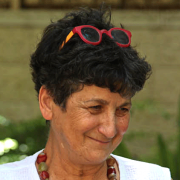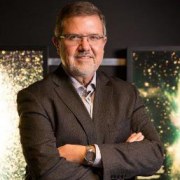The future of science centres: towards 2030 and beyond
Where are science centres headed? In November 2018, 25 science centre leaders convened together with 25 local professionals for a weeklong workshop in Israel, discussing the future of our field. Intense discussions led to the formation of four working groups whose continuous work will be highlighted in this session: what is the impact and relevance of our science centres as we look into the future? How to develop the next generation of science centre professionals and audiences? How can advanced technology develop our field? How can the field engage with developing countries?
Topics included: new models in STEM education; links between formal and informal education; interactive offers and new technologies as the next phase following exhibitions; science centre roles in developing cultural concepts and as honest brokers of science communication; how to stimulate the development of science centres and science engagement activities in the developing world; the issue of whether teenagers deserve a new approach; and the opportunities of longevity.
Facilitator
Director - Schwartz-Reisman Science Education Centers
Weizmann Institute of Science
Session speakers
The unique combination of practice, traffic and reflection makes science centers learning laboratories ready to propose new ways of making research vital. Science centers can research, experiment and apply solutions within this same learning environment in a relatively short time. As institutions closely collaborating with schools, informal educators, universities and occasionally business science centers are in a position to have a real impact on quality and modern education based on research.
Richards Bay
South Africa
Today there still is an enormous lack of science centers and science engagement activities in developing countries although these countries would benefit even more from it than people in the developed world.
We present a concrete proposal to stimulate the development of science centers and science engagement activities in the developing world.
We will introduce the 3 P’s: Plan, People and Pool and a timeline for the years to come.
I will summarize the Science Center Global Workshop 2018 held in Israel Nov 2018.
Science Centers like the Bloomfield Science Museum face these challenges:
• Engaging the community: Co-creation of content with citizens, researchers, youth, makers and innovators
• Making more impact: Enriching the level of Science Capital of young people to help broaden their opportunities and access to STEM-related jobs in the future.
• Broadening our audiences: Increasing the numbers of teenagers and seniors attending the museum.
• Building financial sustainability: Diversifying the range of sources of income.
• Developing our field: Creating a Community of Practice of practitioners and researchers, in informal and formal STEM education.
CEO and Chief Science Officer
We will present Ontario Science Centre’s Science Literacy Survey on the public’s views on new scientific and technological developments, such as artificial intelligence and block chain; science-based issues, such as climate change, GMOs, and vaccination; and the sources from which they get their information about science and technology; What role science centres play in the public’s daily quest to make meaning of an increasingly complex and confusing world.
The challenges we face include:
• Ongoing development of innovative and relevant science exhibitions
• Ongoing development of relevant educational programs
• Ensuring sustainability of professional and financial resources
• Ensuring the financial support of the municipality
As science centres and museums, we have developed unique competences in order to communicate difficult topics in an easy understandable format, but are we able to take on the immense task of communicating emerging technologies?
Are we ready to boost knowledge and understanding of emerging technologies among children, young people and adults and reach boys and girls equally?
Are we able to facilitate sharing knowledge across the public and the industries?







